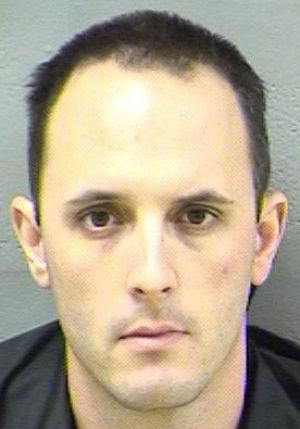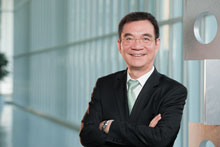http://dailycaller.com/2015/07/08/n...hange-for-chinese-breaking-him-out-of-prison/
Navy Pilot Tries To Sell F-35 Secrets In Exchange For Chinese Breaking Him Out Of Prison
JONAH BENNETT
Reporter, Daily Caller News Foundation
11:30 AM 07/08/2015
A Top Gun Navy pilot serving time in prison for producing child pornography tried to sell secrets about the F-35 and F/A-18 Super Hornet to the Chinese. What did he want in return? He wanted the Chinese to break him out of prison.
While serving time in prison, 31-year-old Lt. Daniel Chase Harris wrote a letter to the Chinese Embassy saying that he believed he was wrongly convicted of coercing young girls into shooting pornographic material of themselves, The Virginian-Pilot reports.
A federal jury convicted him after a 12-day trial, which ended in March. He was first arrested in late 2013 by the Bedford County Sheriff’s Office.
Based on court testimony, Harris adopted online aliases and pretended to be different teenage boys, while talking to the girls between 2011 and 2013. After obtaining naked photos of the girls, he tried to threaten them into sending videos, saying if they refused, he’d show the photos to the girls’ friends.
10 Countries With Crazy High Salaries
TopMens
This is what your private banking salary and bonus should be in Singapore
eFinancialCareers
by TaboolaSponsored Links
One girl tried to commit suicide. After speaking with investigators in November 2013, Harris wrote a letter apologizing to one of the victims.
In his most recent letter, Harris informed the Chinese that if they didn’t respond on a quick enough timeframe, he’d pass the information to the Russians, instead. Since he knew his mail was being screened at the Western Tidewater Regional Jail, he adopted the name of another inmate.
“Attached is a list (partial) of information I possess that I believe you would be very interested in having. All I ask in return is that you break me out,” the letter wrote. “Once out and under your protection, all my knowledge is yours.”
“I believe this letter, the schedule it is written on and a Google search of me in Virginia Beach will prove my sincerity/honesty,” the letter added. “The decision is yours, but if you don’t act fast it will be gone.”
Harris’ sentencing hearing is set for Monday. Federal prosecutors haven’t added any new charges as a result of the letter. Even if there were any charges, Harris’ defense attorney, Andrew Sacks, said Harris never wrote the letter. This isn’t the first time that Sacks has argued the point. Previously, Sacks said that Harris’ computer was hacked by a “John Anderson” who wanted to ruin the pilot’s marriage by threatening girls for explicit material. Prosecutors, however, are fairly convinced that letters and text messages sent from “Anderson” originated from Harris while in prison.
Harris faces anywhere from a minimum of 15 years to life in prison.
Navy Pilot Tries To Sell F-35 Secrets In Exchange For Chinese Breaking Him Out Of Prison
JONAH BENNETT
Reporter, Daily Caller News Foundation
11:30 AM 07/08/2015
A Top Gun Navy pilot serving time in prison for producing child pornography tried to sell secrets about the F-35 and F/A-18 Super Hornet to the Chinese. What did he want in return? He wanted the Chinese to break him out of prison.
While serving time in prison, 31-year-old Lt. Daniel Chase Harris wrote a letter to the Chinese Embassy saying that he believed he was wrongly convicted of coercing young girls into shooting pornographic material of themselves, The Virginian-Pilot reports.
A federal jury convicted him after a 12-day trial, which ended in March. He was first arrested in late 2013 by the Bedford County Sheriff’s Office.
Based on court testimony, Harris adopted online aliases and pretended to be different teenage boys, while talking to the girls between 2011 and 2013. After obtaining naked photos of the girls, he tried to threaten them into sending videos, saying if they refused, he’d show the photos to the girls’ friends.
10 Countries With Crazy High Salaries
TopMens
This is what your private banking salary and bonus should be in Singapore
eFinancialCareers
by TaboolaSponsored Links
One girl tried to commit suicide. After speaking with investigators in November 2013, Harris wrote a letter apologizing to one of the victims.
In his most recent letter, Harris informed the Chinese that if they didn’t respond on a quick enough timeframe, he’d pass the information to the Russians, instead. Since he knew his mail was being screened at the Western Tidewater Regional Jail, he adopted the name of another inmate.
“Attached is a list (partial) of information I possess that I believe you would be very interested in having. All I ask in return is that you break me out,” the letter wrote. “Once out and under your protection, all my knowledge is yours.”
“I believe this letter, the schedule it is written on and a Google search of me in Virginia Beach will prove my sincerity/honesty,” the letter added. “The decision is yours, but if you don’t act fast it will be gone.”
Harris’ sentencing hearing is set for Monday. Federal prosecutors haven’t added any new charges as a result of the letter. Even if there were any charges, Harris’ defense attorney, Andrew Sacks, said Harris never wrote the letter. This isn’t the first time that Sacks has argued the point. Previously, Sacks said that Harris’ computer was hacked by a “John Anderson” who wanted to ruin the pilot’s marriage by threatening girls for explicit material. Prosecutors, however, are fairly convinced that letters and text messages sent from “Anderson” originated from Harris while in prison.
Harris faces anywhere from a minimum of 15 years to life in prison.




